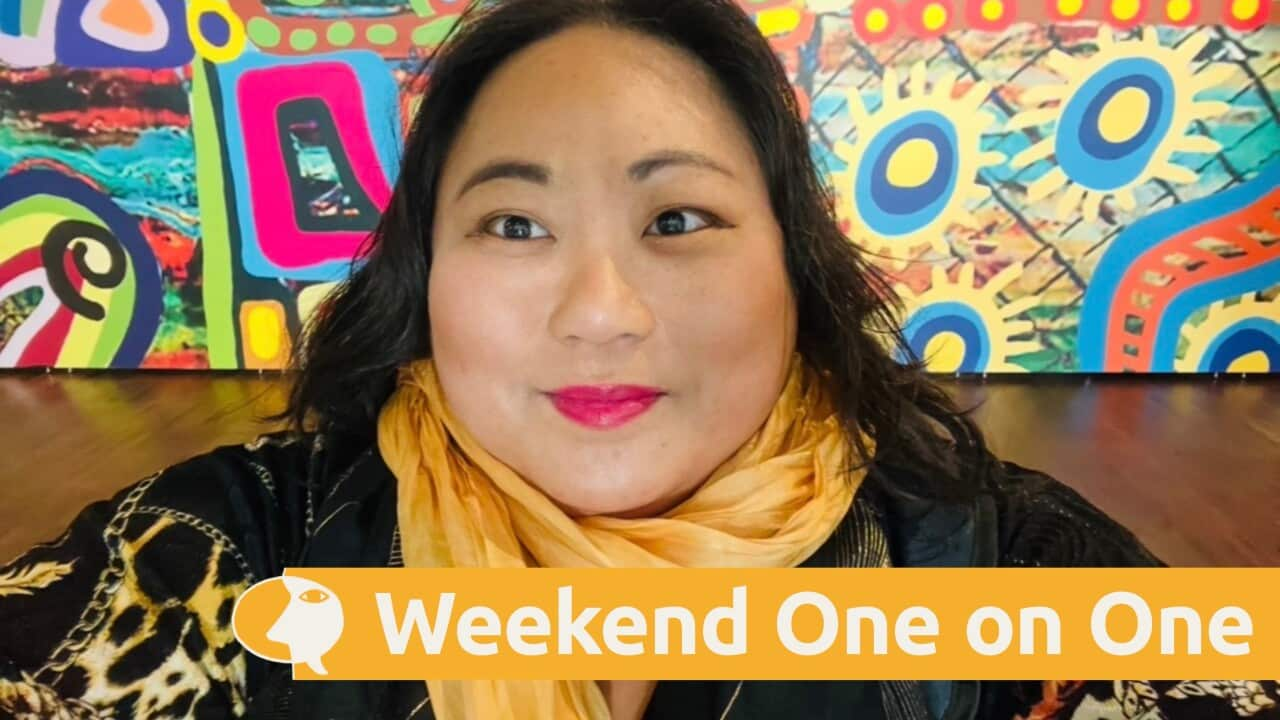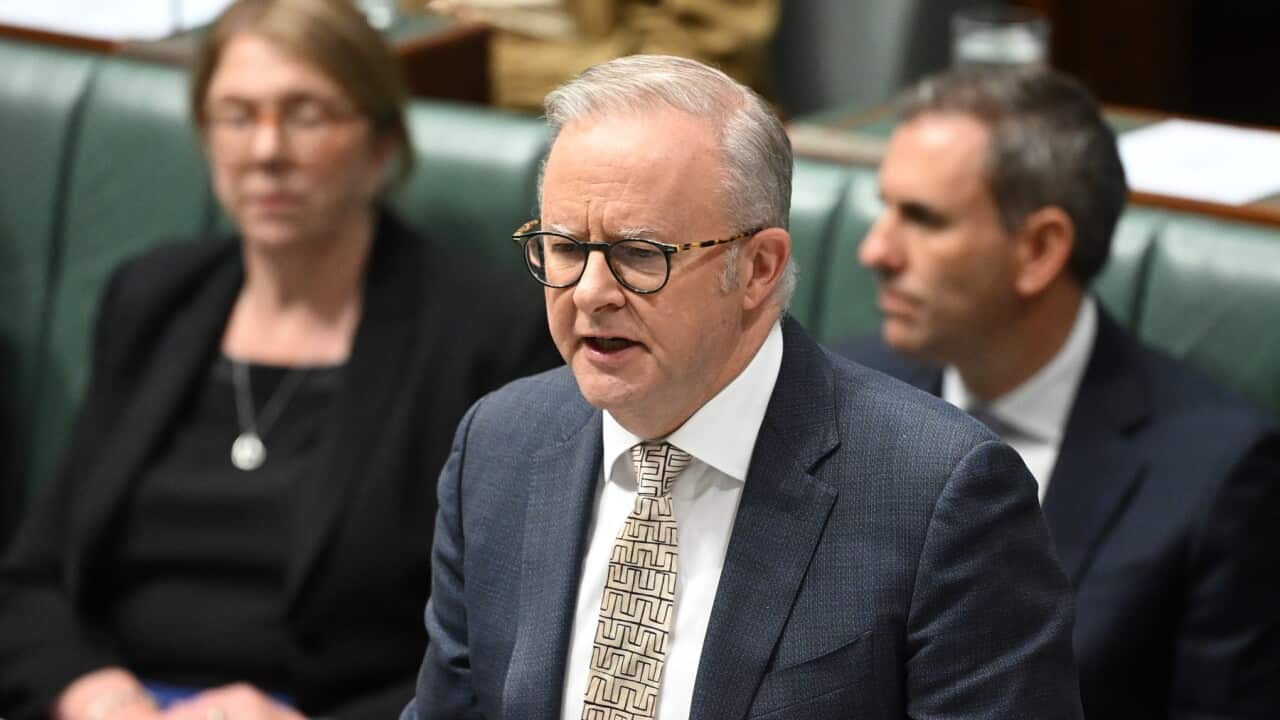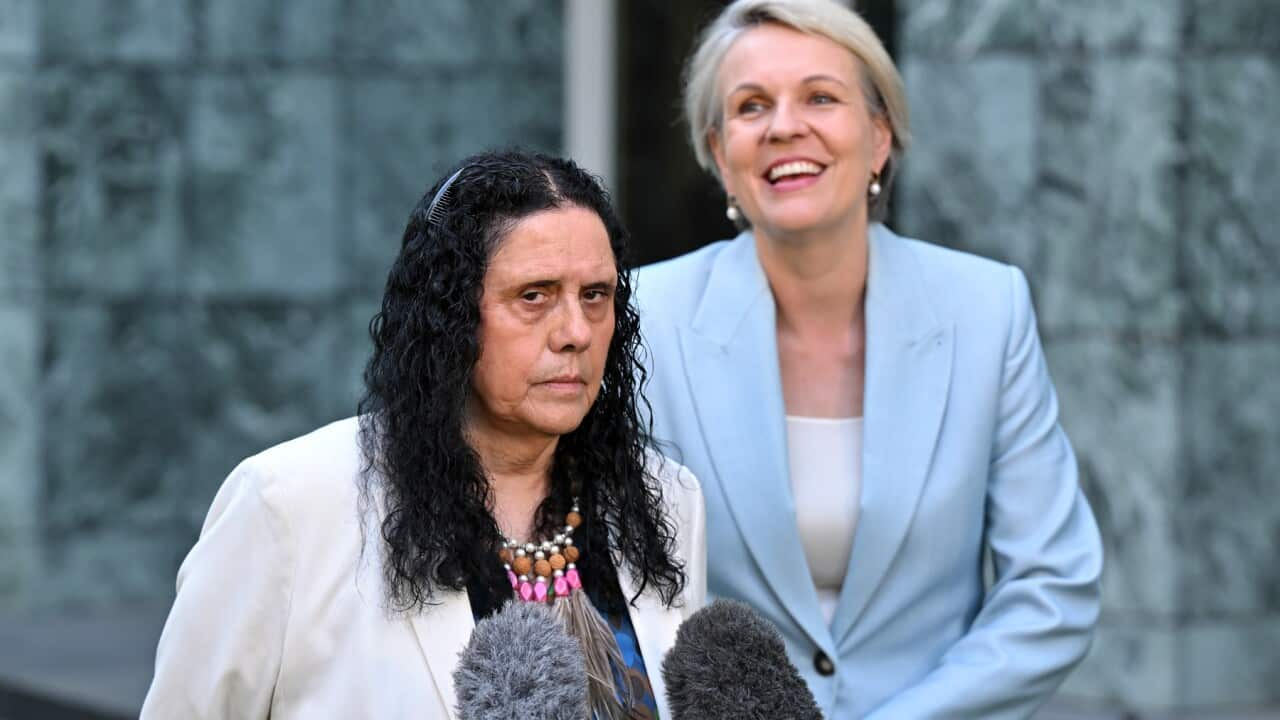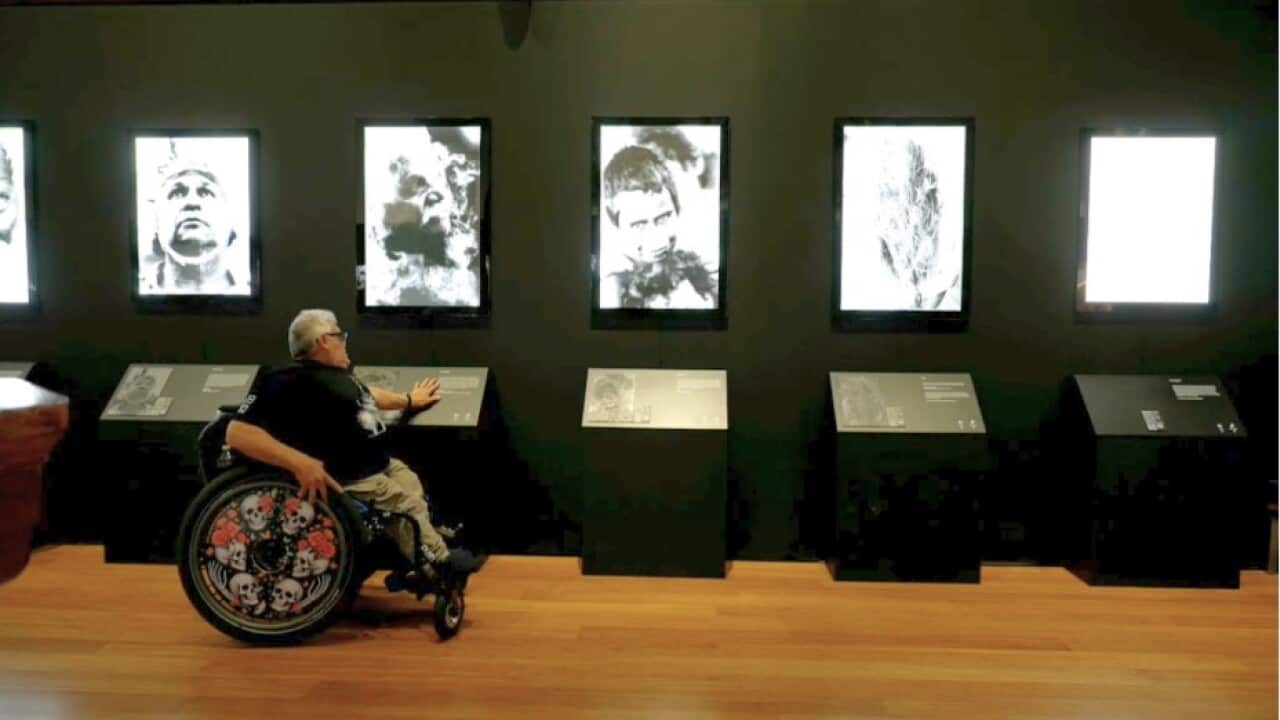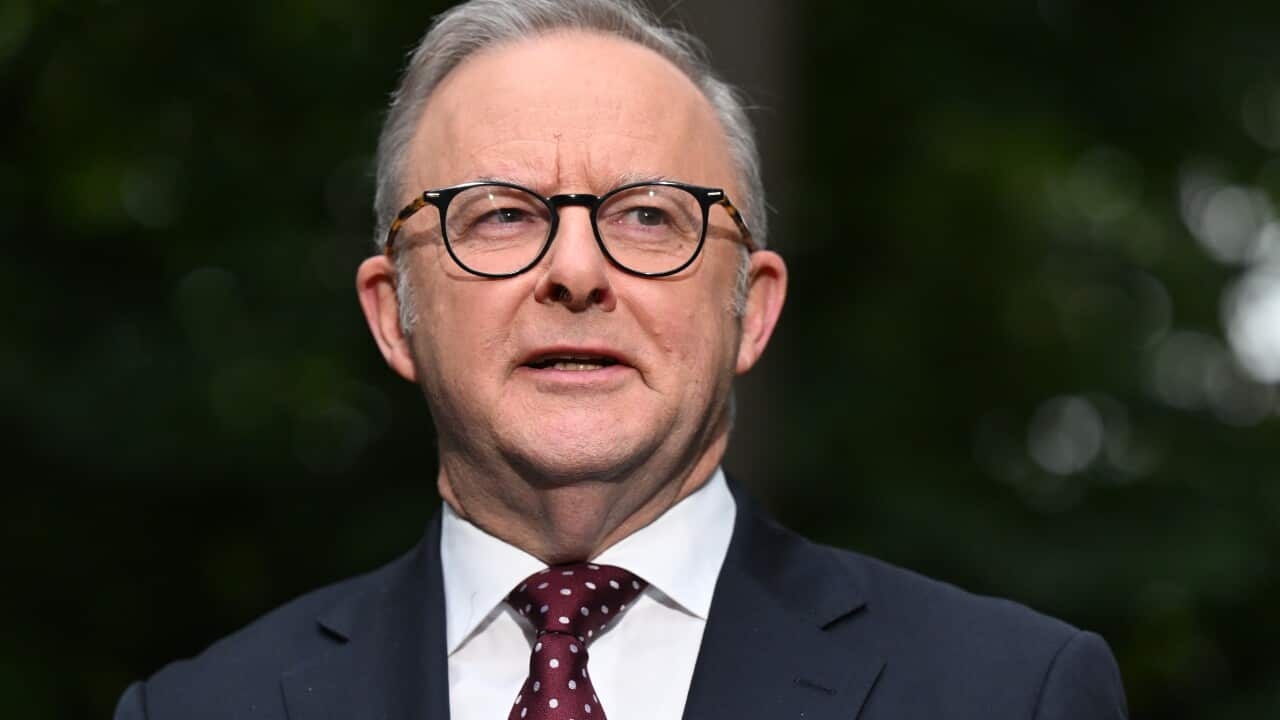Listen to Australian and world news, and follow trending topics with SBS News Podcasts.
TRANSCRIPT:
Out in the Wheatbelt of Western Australia, something is happening ...
It’s a movement to heal Country - and community.
"And you can see the soil, how degraded it is."
For generations, acres of land in the Wheatbelt was stripped by clearing, cropping and overgrazing.
Ballardong Noongar man Oral McGuire says settlement and colonisation left scars on both soil and spirit.
"All of these activities are very extractive activities that for 170 odd years this little piece of land here, the whole landscape through this region, has suffered that abuse from, you know, settlement colonisation."
Today, Mr McGuire works as a regenerative land manager, guided not by commodity farming, but by cultural law.
"Slow burning, or our cool burning that we do as Noongars, and we do it to replenish country. The season we are in now is the right season for us to be doing it."
Fire, water, native plants - all are central to reviving ecosystems that once thrived here.
"So they are indicators that the soil, the balance and the health of the soil is returning, because they haven't been here."
It’s a vision stretching beyond agriculture — into healing Country itself.
"Healing country heals people and healing the spirit of the land itself, is the most powerful thing that any human can participate in and contribute back to nature itself, or back to boojar as we say."
Oral McGuire was born in Western Australia's Wheatbelt in Beverley, on Ballardong land, and says his family’s connection here goes back thousands of years.
"One of our first trees - this area here was planted out in 2008."
Since acquiring Yaraguia farm nearly two decades ago, more than a million trees have been planted.
From bush honey to wattle seed, bush tucker is now thriving again.
But Mr McGuire insists he and his family are not farmers because he is working with Country, not against it.
For him, restoring land also means restoring identity.
And it is knowledge being recognised nationally.
"Oral's vision is for the promotion of an entrepreneurial culture within and among the Noongar people of Western Australia. Please welcome Oral McGuire."
At this year’s Regenerative Food Systems Conference, Yaraguia farm was held up as a model of Indigenous-led restoration.
Soil biodiversity expert Dr Jacob Parnell was at the conference and travelled from the United States.
"A lot of the global issues that we are facing today, really the foundation of those is the soil. So if we protect the soils and we regenerate, grow those soils then we improve a lot of these other problems we are facing today."
Dr Parnell says Indigenous knowledge is critical to the future of farming.
"Indigenous people were farming for thousands of years and so going back to saying what were they doing that was right, and understanding that interaction with the soil is very important. And so there is that, and then we also have the science to back that up."
Noongar academic and Impact Dream director Heidi Mippy agrees.
She’s researching new ways of reimagining landscapes, restoration and food systems.
"There's many reasons why we have to have Noongar knowledge at front and centre to these conversations. I think one is around land access, so if we don't have our knowledge brought to the system, we are not reconnecting back to country. And part of that is this reconciliation journey that Australia keeps talking about for the past 20 odd years."
She says regenerative farmers are more open to First Nations perspectives.
"My best relationships here at the moment have been with the regenerative farmers. I think this is because they are more open to thinking about things like soil health, biodiversity, water and all of those key issues that it is a little bit harder to have those conversations with mainstream farmers."
Back on Country, Oral McGuire says this work is about creating a future where his children and the next generation can live on and with the land.
"The benefit that we have done here as particularly Noongars is, we've put ourselves in a very strong position, where in 10 years’ time we will absolutely exist. And some of our neighbours will be absolutely gone."
Healing Country and, in turn, healing people.
"The healing of country becomes, you know, your own healing. And so I think I've been on a healing, my own healing journey because of this."
For Ballardong Noongar man Oral McGuire this is not just regenerative farming.
It is cultural survival, spiritual renewal, and a blueprint for a more sustainable Australia.

